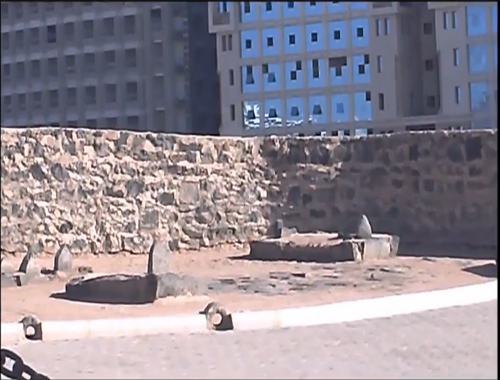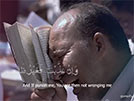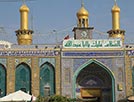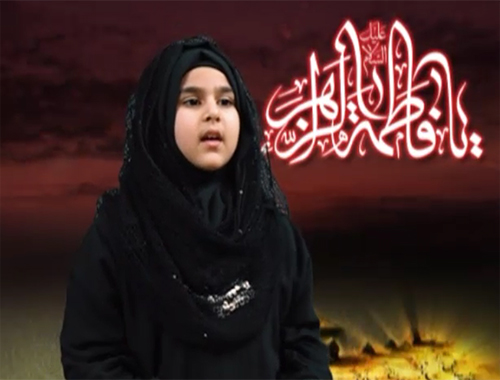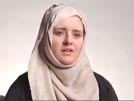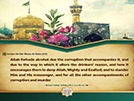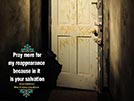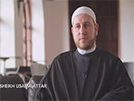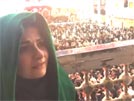Verse50
- Details
- Hits: 2149
(50) قُلْ لا أَقُولُ لَكُمْ عِنْدِي خَزائِنُ اللَّهِ وَ لا أَعْلَمُ الْغَيْبَ وَ لا أَقُولُ لَكُمْ إِنِّي مَلَكٌ إِنْ أَتَّبِعُ إِلاَّ
ما يُوحى إِلَيَّ قُلْ هَلْ يَسْتَوِي الْأَعْمى وَ الْبَصِيرُ أَ فَلا تَتَفَكَّرُونَ
50. " Say: (O' Our prophet !) ' I do not say to you that the treasures of Allah, are with me, nor do I know the Unseen, nor do I say to you that I am an angel. I do not follow but what is revealed to me.' Say: ' Are the blind and the seeing one equal ? Do you not then ponder ? ' "
Commentary :
Knowing the Unseen !
This verse is a complementary statement to answering the different protests of pagans and polytheists. Here, three divisions of their protests are responded in some short sentences.
The first one is that they suggested the Prophet (p.b.u.h.) to bring some surprising and wonderful miracles. Secondly each of them suggested a separate thing as the one wished. Thirdly they were not contented with observing the miracles that some others asked for. Their desires were sometimes some houses made of gold, sometimes the descent of angels, and another time they wished the dry hot land of Mecca to be changed into a vast garden full of water and fruits.
By demanding these amazing things from the Prophet (p.b.u.h.), as if, they expected the rank of a kind of divinity and ownership of the earth and the heaven for him.
That is why, in answer to these people, Allah commands the Prophet (p.b.u.h.) :
" Say: (O' Our prophet !) ' I do not say to you that the treasures of Allah, are with me, ..."
The Arabic term /xaza'in/ is the plural form of /xazinah/ with the meaning of 'source and treasure of everything '. Thus, the Qur'anic phrase /xaza'inullah/ (the treasures of Allah) encompasses the treasures of the whole things. This originates from His Infinite Essence, Who is the source of all virtues and powers.
Some of those people expected that the Prophet (p.b.u.h.) would imform them of the entire secrets concerning the future and the past. They expected him to tell them what happenings would occur in their lives, so that they could try to repel their harms and attract their profits. Then, in answer to such people, through the continuation of the verse, the Prophet (p.b.u.h.) was told to say:
"... nor do I know the Unseen, ..."
Some of them expected that the Prophet (p.b.u.h.) himself to be an angel, or an angel could accompany him. They desired that there would be no quality of human beings in him, such as eating food, walking in the roads and markets, and so on. To answer the rejection of these people, in the third sentence of the verse, the Qur'an says:
"... nor do I say to you that I am an angel. ..."
Then, in the continuation of this statement, he adds that he follows only the commandments and instructions that are communicated to him through revelation from the Lord.
"... I do not follow but what is revealed to me.'..."
At the end of the verse, the Prophet (p.b.u.h.) is ordered to ask them whether the blind and those who can see are equal. Are those whose eyes, minds and intellects are shut equal with those whose eyes see the facts well and recognize them ?
"... Say: ' Are the blind and the seeing one equal ? Do you not then ponder ? '"
* * * *

